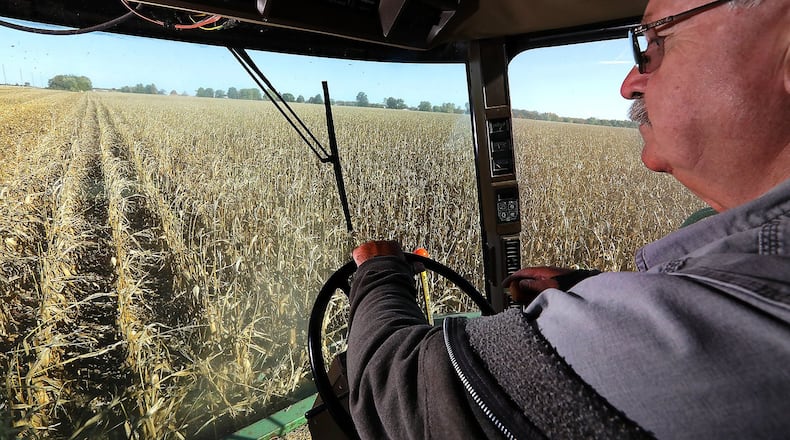I recently read in a national publication that, since January, there have only been a handful of trading days to sell the new crop above their breakeven cost of production. Production has been greater than demand, resulting in price and net profit uncertainty.
It seems the common perception is farmers should be satisfied with selling at breakeven just covering their cost. But suppliers demand more than breakeven and merchandisers expect a profit. If you want a sustainable future, you better be profitable.
Agriculture history has seen government programs that removed land from production to support price that have and can last for decades. The Set Aside Program and Conservation Reserve Program are two that come to mind.
Solar has a similar result for the farm economy.
Solar provides income diversity to a farm operation.
Solar is only available where there is an underutilized transmission line going to an underutilized substation. It utilizes existing infrastructure (transmission lines).
Solar lease payments provide capital for the improvement of a farm operation through the enactment of strategies to enhance marketing (enhanced grain storage), enhance productivity (replacing deteriorating drainage systems and adding new) and enhance conservation practices (equipment to enable cover crop implementation/expansion).
Lack of profitability makes additional investment a challenge.
Livestock grazing is currently an accepted and utilized practice within the solar array. There is also active research and development happening now in having crop production within the solar array.
In June, the Springfield News-Sun published an article that spoke extensively about housing and commercial development threatening farmland. Solar was never mentioned.
Solar land use is not a permanent reduction of farmland. Twenty- to forty-year leases with equipment removal and land restored to its original condition for agriculture production are guaranteed through bonding requirements.
Housing development is a permanent reduction of farmland. It often requires additional government investment in infrastructure, schools, etc. Should new housing be outright banned?
Commercial development is a permanent reduction of farmland. It often requires government investment in infrastructure and tax subsidies. Should commercial development be outright banned?
Solar is not going to take over anything. It can only be considered where existing infrastructure make it economically feasible. It has too often been a target for blame when it actually should be viewed as one tool to assist an ailing agricultural economy.
With demand rising faster than capacity, Ohio’s electric grid is at risk of being overwhelmed as early as 2027. With 172 data centers, Ohio has more data centers than Pennsylvania, Michigan and Indiana combined. One aspect of the overall challenge: Fossil-fuel generation sources were retired as federal rules became more stringent. But renewable sources have not come online fast enough to replace them. Artificial intelligence and other new, emerging technologies will require all forms of additional generation, including natural gas, coal, oil, nuclear, wind and solar to meet the increasing demand.
Farming has to be adaptable to be successful and sustainable. At one time, bio-fuels were discouraged based on the fallacy of it restricting food production. The opposite is occurring in soybean oil being used as feedstock for bio-fuels. This has resulted in a protein supply of more affordable soybean meal for animal rations as well as other food uses.
Farmers should have the freedom of marketing their labor and capital toward what makes sense for them. They should have the ability to help meet the increasing electrical demand our nation is experiencing by producing electricity by harvesting the sun via solar.
Determining the life or death of a solar project should be based on the specific attributes and merit of each individual project.
The farmer is challenged by weather, the cost of borrowing, market volatility, government overreach and inaccurate information. Banning solar in any form adds one more challenge and takes away the private property rights that allows the landowner to choose the best strategies for sustaining their property and farm.
Bob Suver is a fifth generation soybean and corn farmer and former executive director of the Clark County Department of Jobs & Family Services.
About the Author

